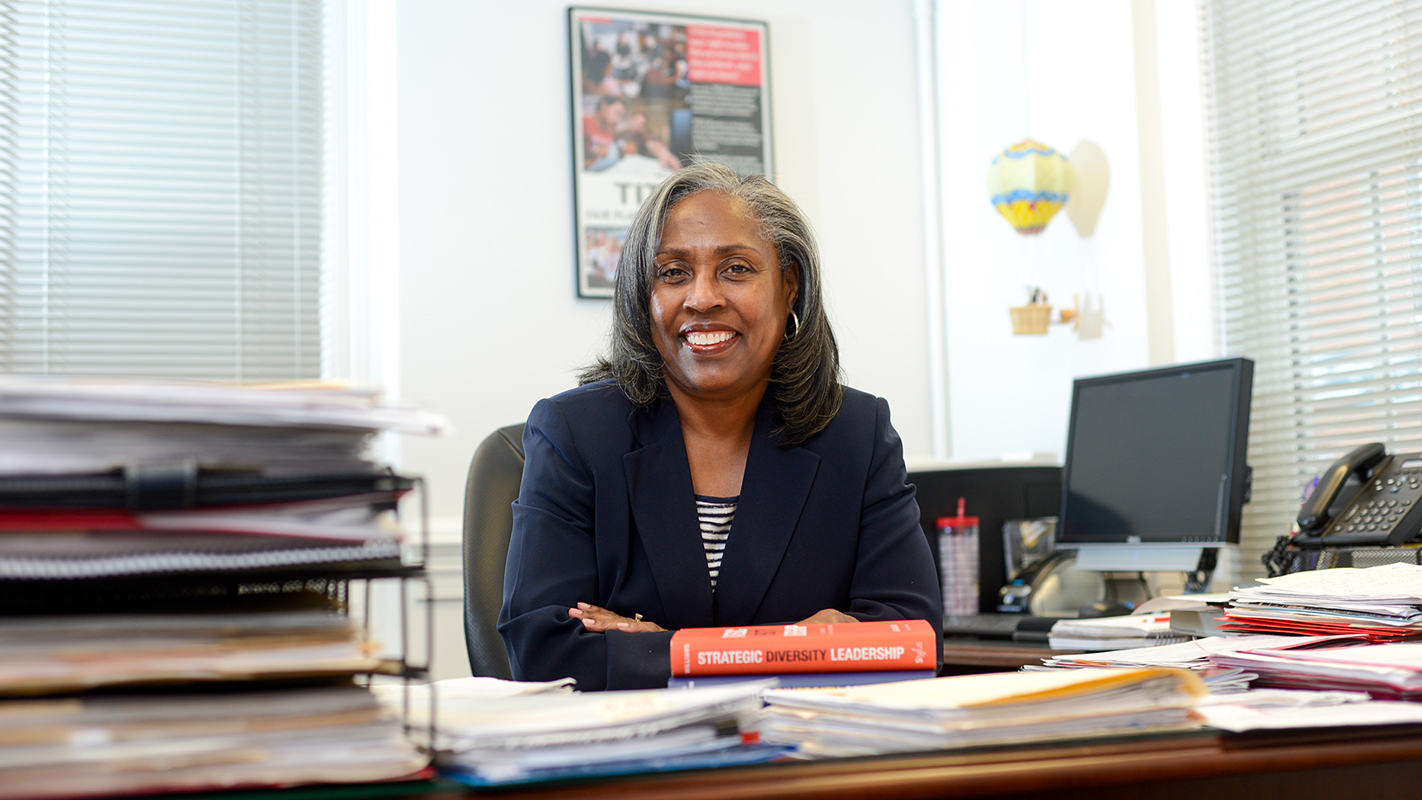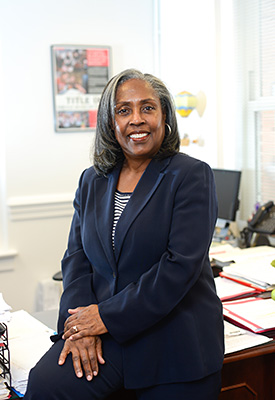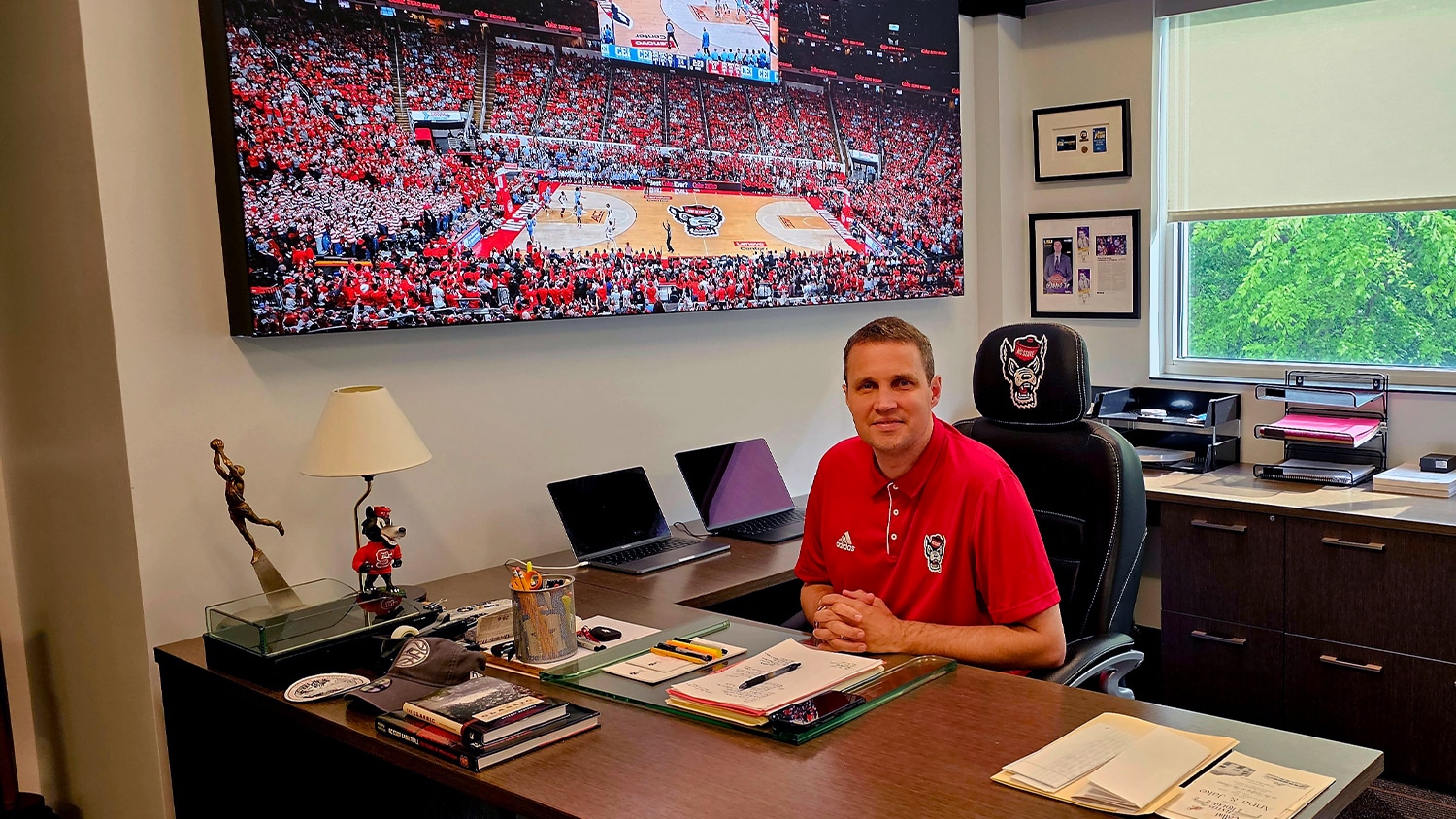Woodard Heads to Lone Star State

Joanne Woodard marvels at the changes she’s seen at NC State in the past quarter century. The size and complexion of the student body is certainly different, mirroring the region’s growth as a diverse and welcoming environment for new people, ideas and innovation.
What hasn’t changed is Woodard’s quick smile – an NC State trademark as familiar as the Corinthian columns arrayed outside of Winslow Hall, where she heads the Office of Institutional Equity and Diversity.
It’s true that her smile dims momentarily as Woodard discusses her “trepidation” over her upcoming departure from NC State in June, when she and husband Harold move to the Dallas-Fort Worth area. But the smile returns to full power in an instant.
“This is a new adventure for us,” she says brightly.
A Seat at the Table
NC State’s loss is the University of North Texas’ gain; Woodard has accepted a position as vice president for diversity and inclusion at UNT, a public research university with more than 36,000 students.

Reporting directly to UNT President Neal Smatresk, Woodard will be a member of the university’s core leadership team, the President’s Cabinet. It’s a chance to have “a seat at the table,” she says, to advocate for diversity and equity at the highest levels of the institution.
A history teacher, Woodard brings both personal and professional perspectives to the role. Growing up in Charlotte, N.C., during the 1960s, she recalls the 1965 bombings that damaged the homes of civil rights activists Kelly Alexander Sr., Fred Alexander, Julius Chambers and Reginald Hawkins.
“It was shocking, searing to the neighborhood,” she says.
Fifty years later, Woodard is proud of the part she’s played in recruiting and supporting an increasingly diverse community of students, faculty and staff at NC State.
Cultural Competence
Under her leadership as vice provost, OIED offers workshops and training, oversees compliance with state and federal law, sponsors events and organizations, administers diversity grants and awards, leads diversity dialogues, offers peer mentoring programs, and operates the Women’s Center, GLBT Center, African American Cultural Center and Multicultural Student Affairs.
The work is vital, especially in today’s global economy.
“When we look at data from business leaders who employ our graduates we get good feedback that employers know that our students have technical competence,” she says. “But employers also want to know that our graduates are comfortable working with people anywhere in the country or anywhere in the world. Cultural competence is necessary for professional success.”
It’s a lesson Woodard takes to heart as she leaves friends and colleagues in the Triangle, her home for nearly three decades, for the culture and climate of Dallas-Fort Worth, a “metroplex” of nearly 7 million residents covering 9,000 square miles.
Aside from the adventure and the job opportunity, Woodard has another reason to smile.
“We’re not giving up our home in Apex,” she says. “We’ll be back in 10 years when we retire.”
- Categories:


